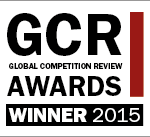In a decision released yesterday the First-tier Tribunal upheld an appeal by the Department of Business, Innovation and Skills (BIS) against a decision by the Information Commissioner (IC) under the Freedom of Information Act 2000 (FOIA) that had ordered disclosure in full of a briefing to the Prime Minister in late 2011 on the financial situation of Thomas Cook. By the time of the hearing, the BIS had agreed that much of the information could be disclosed, and IC agreed (on the basis of information not available to him at the time of his decision) that some of the information which remained in dispute was subject to a statutory restriction on disclosure and therefore was subject to an absolute exemption under FOIA.
In relation to other parts of the briefing, BIS argued that disclosure would prejudice Thomas Cook’s commercial interests (s.43 of FOIA) and that that damage outweighed the public interest in disclosure; it also argued that factual information obtained from Thomas Cook was subject to a duty of confidence so that the absolute exemption in section 41 FOIA applied.
The Tribunal agreed with BIS that redactions should be made in the information disclosed. It accepted that factual information in the briefing about Thomas Cook was obtained from it in confidence and that there was no sufficient public interest justification for breaching that confidence. It also accepted evidence from Thomas Cook and from the Civil Aviation Authority (which has regulatory responsibility for Thomas Cook) that disclosure of information in the form of commentary from civil servants about Thomas Cook’s financial situation in 2011, even some time after Thomas Cook had been restructured, would be likely to prejudice its interests: it noted the volatility of the travel industry and its vulnerability to any adverse publicity.
Thomas Cook was a major employer and any difficulty it got into could harm the taxpayer given that the Government guaranteed the ATOL scheme that insures customers against failure by holiday providers. Those factors overall outweighed the public interest in fully understanding the briefing given to the Prime Minister about the financial situation of a major company.
George Peretz QC acted for BIS: Laura Elizabeth John acted for the IC.
